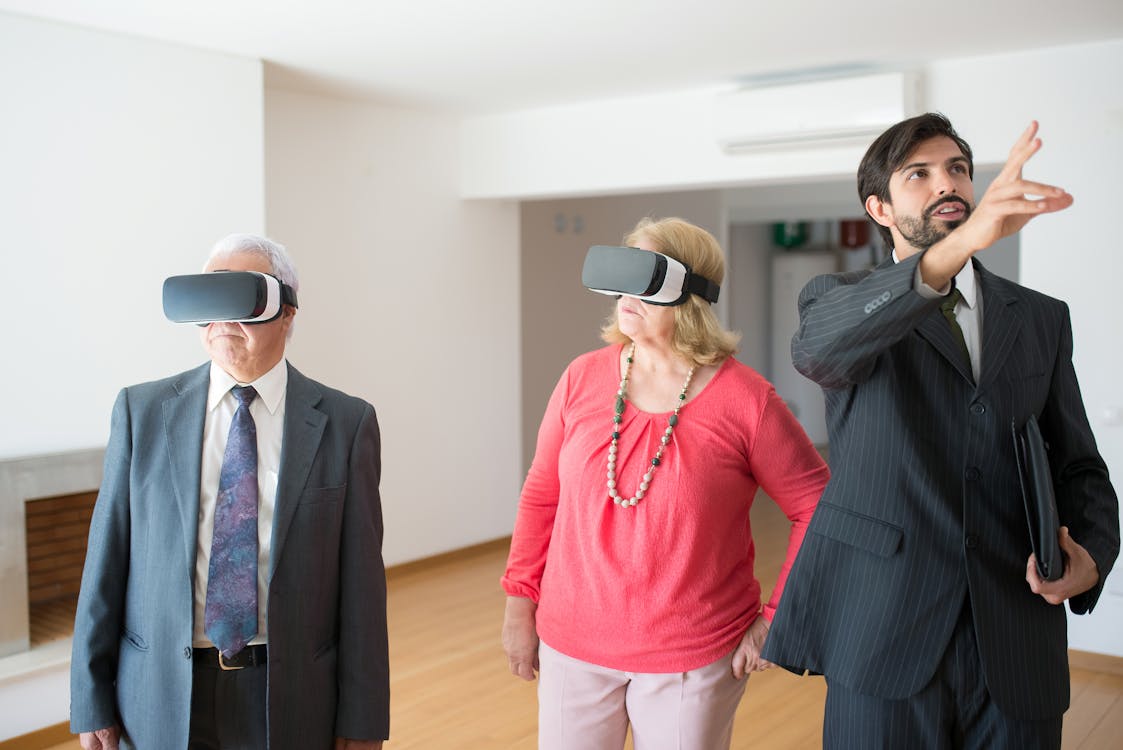Introduction
In recent years, the real estate industry has experienced a significant shift towards the adoption of smart home technology. From advanced security systems and smart lighting, to voice-controlled assistants and home automation, the use of technology in the home is becoming increasingly prevalent. This article will explore the rise of smart home technology in real estate, and the many benefits that it offers to both buyers and sellers in the market.
1: Increasing Demand for Smart Homes
One of the key factors driving the rise of smart home technology in real estate is increasing demand from buyers and renters. As technology continues to evolve and improve, more and more people are looking for homes that offer the latest in smart home technology. From home automation systems that allow you to control lights and temperature from your smartphone, to security systems that offer 24/7 monitoring and protection, the benefits of smart homes are becoming increasingly attractive to buyers and renters.
2: Enhancing Home Security
Smart home technology has revolutionized the way we think about home security. Advanced security systems now offer features such as 24/7 monitoring, real-time alerts, and the ability to control and monitor your home from anywhere in the world using your smartphone. This has made homes safer and more secure than ever before, giving buyers and renters peace of mind and added protection against intruders.
3: Improving Energy Efficiency
Another significant benefit of smart home technology is its ability to improve energy efficiency in the home. From smart thermostats that learn your preferred temperature settings and automatically adjust accordingly, to home automation systems that allow you to control lights and appliances remotely, smart home technology can help you to reduce your energy usage and lower your monthly energy bills. This not only makes homes more affordable to live in, but it also helps to reduce the environmental impact of our homes.
4: Convenient Home Automation
Smart home technology has made home automation more convenient than ever before. With a simple voice command, you can now control lighting, temperature, and other aspects of your home with ease. This makes it easier to manage your home, and it provides a level of convenience and comfort that was previously not possible. For buyers and renters, this is a significant selling point, as it makes their daily routines more efficient and streamlined.
5: Enhancing the Home Buying Experience
Smart home technology has also had a profound impact on the home buying experience. With virtual tours and online listings, buyers are now able to see homes from the comfort of their own homes, without the need for in-person viewings. This has made the home buying process more efficient, as well as more convenient for buyers. Additionally, smart home technology has enabled buyers to see exactly what they are buying, even before they move in, which has increased confidence and trust in the home buying process.
6: Benefits for Sellers
For sellers, the adoption of smart home technology in real estate has had numerous benefits. By incorporating smart home technology into their homes, sellers are able to differentiate their properties from others on the market, and offer added value to potential buyers. Additionally, the adoption of smart home technology can help to increase the value of a home, as buyers are increasingly willing to pay more for homes that offer the latest in smart home technology.
Conclusion
In conclusion, the rise of smart home technology in real estate has had a profound impact on the industry, offering numerous benefits to both buyers and sellers. From increased security and energy efficiency, to convenient home automation and enhanced home buying experiences, smart home technology has revolutionized the way we think about homes and real estate. As technology continues to advance, it is likely that the adoption of smart home technology in real estate will
![In the Know with Informium: Discovering [The World] In the Know with Informium: Discovering [The World]](https://blogger.googleusercontent.com/img/a/AVvXsEgcDyR0p1ytrjUEjbVNRJ1Rt66C4X1HYJkQZjuSh_BLJNHQVjppjSqTkcbP2tqgWZ84RhZMkFxCHCC-SxGuMPnSww7DG8x0MVE6d7sDvaEGkbPJuvtq_uY2i7hHDjuprQUzeDt2QcAcWChEFl49Huojm3fLHYpSjoXabD75WmhgSI2yfCktm3WuB86PMQ=s150)
